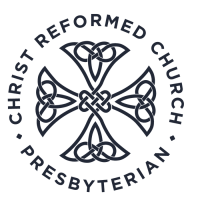Dear Reader:
Ethos is defined as “the characteristic spirit, prevalent tone of sentiment, of a people or community; the ‘genius’ of an institution or system”. Every organization from your family to a Fortune 500 company has an ethos – a way of doing things, an environment, a decision-making process and “feeling” that defines who they are and how they work. Christ Reformed Church’s Ethos is defined by the Holy Scriptures, informed by the Church traditions of the Protestant Reformation, and longingly embraced and practiced by those who worship with us.
The early Church’s form of worship can be seen, in part, in Acts 2:42 where it states, “They were continually devoting themselves to the apostles’ teaching and to fellowship, to the breaking of bread and to prayer.” According to this verse, worship begins with the Word of God or “the Apostle’s teaching”. The centerpiece of the Sunday worship service should, therefore, be on the reading and the preaching of the Bible. The Bible is the source of the service, therefore, it is preferable to teach and read in a Lectio Continua (verse-by-verse) manner through years of Sundays. Paul told his young disciple Timothy, “Until I come, give attention to the public reading of Scripture, to exhortation and teaching” (1 Tim. 4:13). Sermons should be of sufficient length and meaningful content in order to make their full impact. As John Stott says, “sermon-ettes breed Christian-ettes.” The sermon should perform the tasks of reproving, correcting and training in righteousness “that the man of God may be adequate, equipped for every good work” (2 Timothy 3:16-17).
“Fellowship” refers to the gathering together in unity the believers of the local body of Christ. A vibrant Home Group ministry helps to accomplish this as well times of fellowship during Sunday School, Bible Studies, college luncheons, church-wide fellowship meals and other church-oriented events. It also includes alms giving and care for the needy as well as the practice of hospitality in the homes of the saints.
“Breaking of Bread’ refers to the practice of the sacraments. As with other Protestant Churches, Christ Reformed Church affirms two sacraments: The Lord’s Supper (or Communion) and Baptism.
Substantive “prayer” is perhaps one of the most neglected aspects of worship today. Biblical praying includes a full complement of prayers of adoration, praise, confession, intercession, invocation, petition, illumination, and thanksgiving.
To this list of prescribed worship elements we can include “singing” or the lifting of “voices in one accord” (Acts 4). The singing of Psalms, canticles (non-Psalm hymns in scripture) and hymns is prescribed and encouraged throughout Scripture (Ps. 1146; Ps. 2; Lk. 2; Phil 2:2:5-11). The Psalms and canticles are God’s inspired “hymnbook”. To these we add the great hymns and “spiritual songs” of the Church (Col. 3:16).
Because of the enormous power of music for both good and bad, we prefer to sing the proven hymns of the Trinity Hymnal and solid modern hymns as well as the ancient psalms of the Trinity Psalter. The Church of Jesus Christ has its own unique liturgical culture. In many ways, the music we use in worship defines who we are.
Christ Reformed Church is continuously seeking to establish good Biblical boundaries and a Biblical ethos to ensure that God is worshipped on Sunday morning, not man. We accomplish this ambition, in part, by embracing the good traditions brought down to us by Biblical Presbyterian government and worship.
As Chesterton said, “If you find a fence, don’t move it until you know why it was put there.” As the Apostle Paul said, “My message and my preaching were not in persuasive words of wisdom, but in demonstration of the Spirit and of power, so that your faith would not rest on the wisdom of men, but on the power of God” (1 Cor. 2:4-5). “So then, brethren, stand firm and hold to the traditions which you were taught, whether by word of mouth or by letter from us” (2 Thess. 2:15). Therefore, at Christ Reformed Church we have an ethos that embraces what is commonly referred to a Historical Reformed Worship.
This ethos, however, would be vacuous without the practice of the primary Christian virtue of love. It is, therefore, ever the desire of Christ Reformed Church to “speak the truth in love” (Eph. 4:15) and to “rejoice in the Lord always” (Phil. 4:4) while worshipping the Lord “in spirit and in truth” (John 4:24). We hope that when you visit Christ Reformed Church, our ethos of Biblical truth and loving community will be apparent the moment you walk in the door.
Soli Deo Gloria!
Alex
Alexander S. Campbell, D. Min.
Senior Pastor
